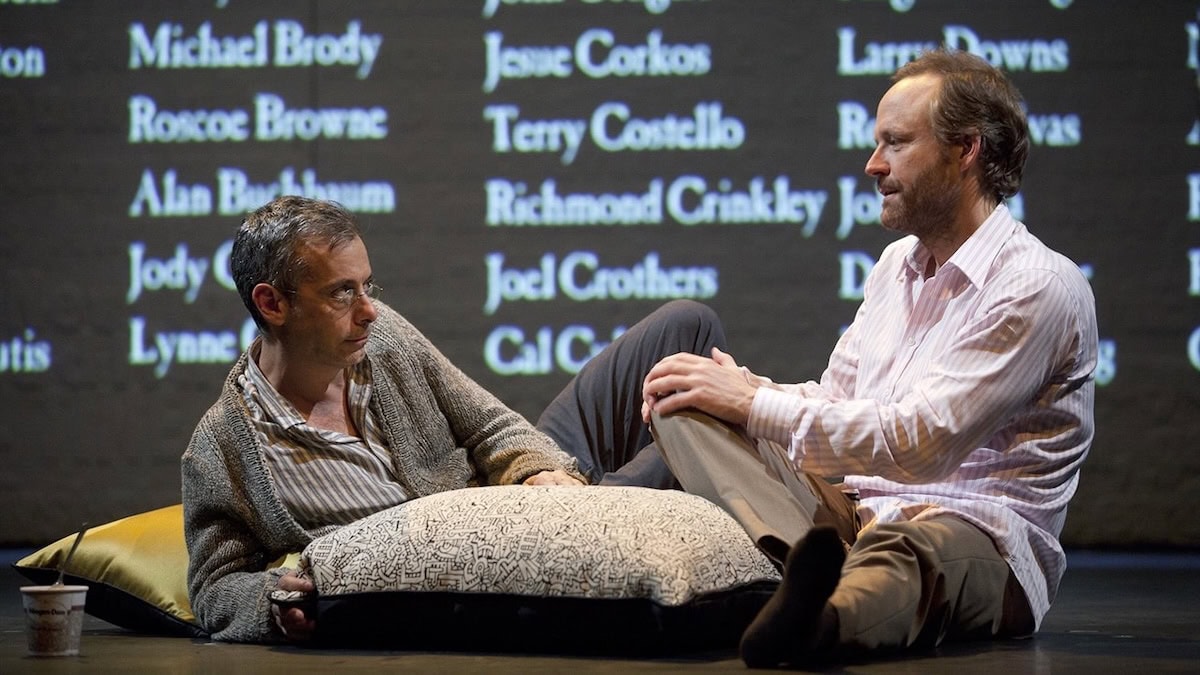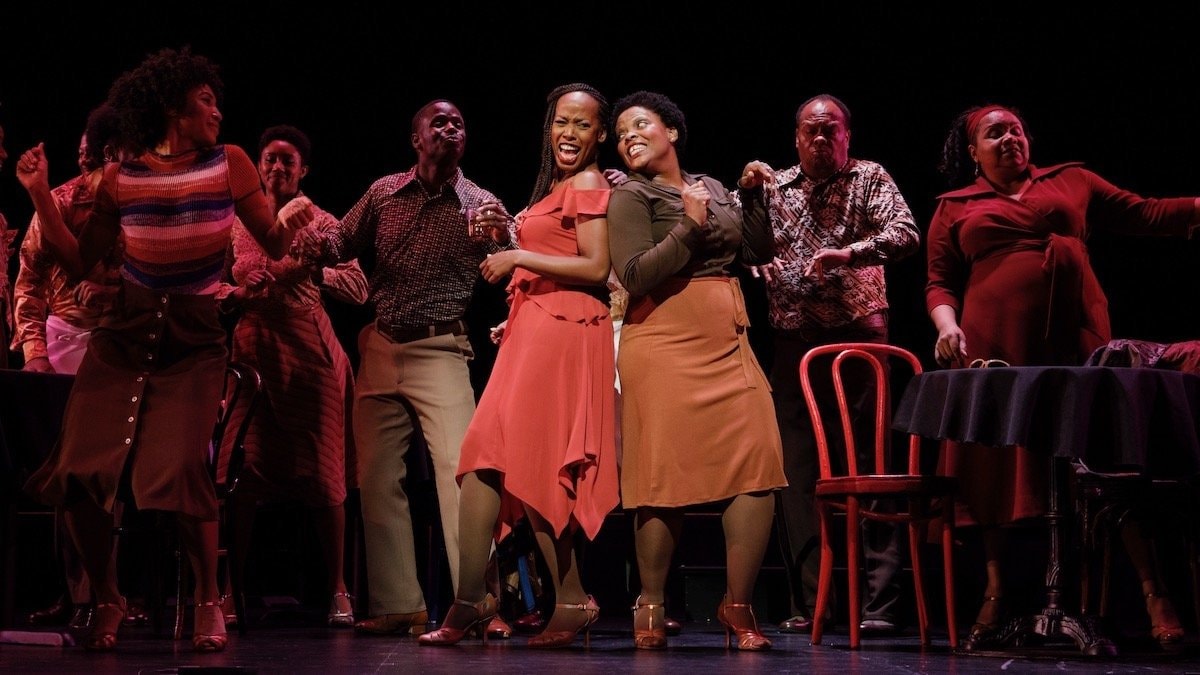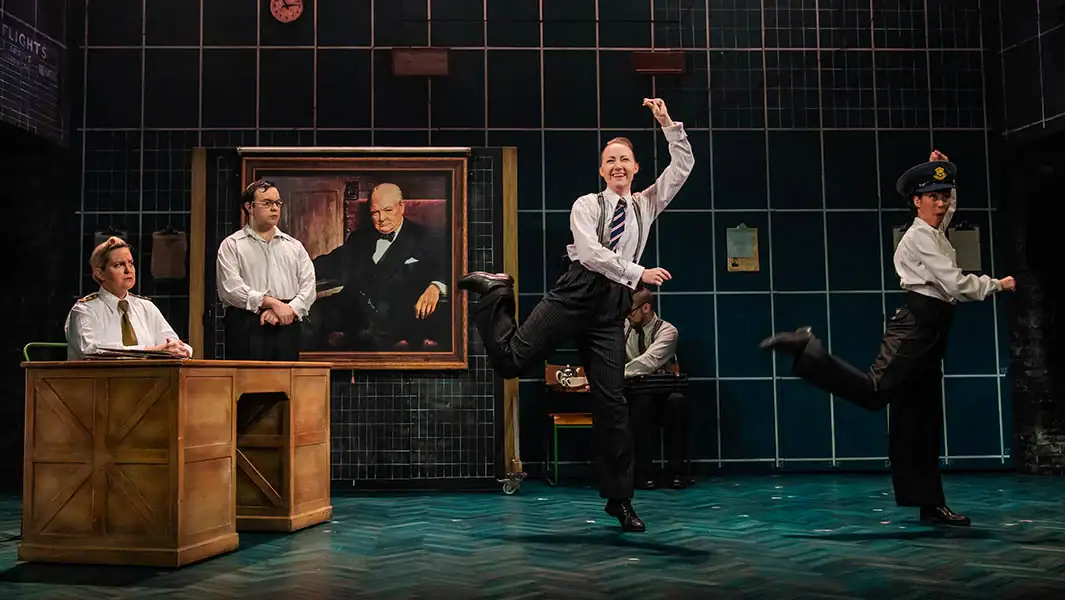
This essay was selected by the Education Theatre Association as a winner of its 2021 DemocracyWorks competition, the prompt for which asked high school students, “How does theatre support your social and emotional well being and foster a welcoming school environment?”
…
The days passed excruciatingly slowly. I would wake up to the sound of an alarm at 9 AM and do my virtual schoolwork, take a walk around the block, then fiddle on my phone in bed. I would go to sleep at midnight, or whenever I grew tired. I begrudgingly told myself each morning that I was somehow content with my new life; content with being alone in my room for most of the day, content with events I had been eagerly anticipating for months being canceled instantly, content with massive amounts of hard-work culminating in nothing.
As the days passed- first one week, then two, then more months than I could keep track of – my routine stayed much the same, and my isolation deepened. There was no news but of death, destruction, and discrimination. Both the literal and figurative diseases that plagued society came to light and once, and everything else was seemingly consumed by darkness.
This was my experience, at the beginning, one that I shared with nearly everyone. But the ending is what distinguished mine from the rest, shared with but a few people: the cast of Shakespeare’s Othello.
Come June of 2020, my new routine was rather unchanged. I woke at the same time, to the same alarm, but instead of reliving my personal version of Groundhog Day, I entered a sacred (virtual) space: the theatre.
Our stage was a screen and our script was the only thing recognizable about the entire production. We were separated by miles and microphone delays, but we were together. Just ‘together’ was enough, but the theatre never stops at enough. Instead, we redefined, together, what it was to live in 2020. It was not a hindrance to our normal lives, it was an opportunity to make change and learn how to be flexible. It was hard to remember that I was logging in to the daily video call and not teleporting to a real rehearsal room, because I had the same safe space I had missed during the pandemic. Through journaling, discussion, and performance, we regained all that we had lost in the previous months. Together, we were healing.
Theatre heals the sick and the hurt, the betrayed and the broken. It always has. Theatre healed on September 13th, 2001, when the doors of 23 broadway theaters reopened less than 48 hours after the unthinkable tragedy of 9/11. Theatre healed my hometown of Orlando, Florida on June 12th, 2016 when Tony Award nominees wore ribbons and reminded the world that “Love is love” following the deadly shooting at the Pulse nightclub. Theatre healed on February 14th, 2018 when students at Marjory Stoneman Douglas high school lost their teachers and classmates but gained the knowledge that they were part of a much larger community. Theatre healed me and my castmates when we were able to create something beautiful after months of melancholy. Theatre heals every day, offering those who have nothing a place to belong and thrive.
The arts alone could bring people together again after months of government-mandated isolation. Regardless, many individuals were socially secluded before it was obligatory, but the allure of theatre has always been enough to draw them out and give them the gift of belonging. My first elementary school play induced my metamorphosis from the quiet girl who sat alone on a playground bench and did not speak, to the one reciting lines onstage in an extravagant costume. Each time I return home to the art form that defined me, I notice the same transformation occurring in others. Lifeless teens into cheerful ones, stressed-out students finally at ease. In theatre class and rehearsals, everyone belongs, both in school and the world as a whole. Little else but theatre could claim to be truly diverse, where individuals of all walks of life come together to tell the same story. Little else could truly transport individuals, onstage and off, from their imperfect lives to a better one. It is a necessity to offer as many people as possible the chance to experience what it feels to be wanted, to be supported, to be part of something bigger than themselves; it is a necessity to have theatre in schools.
…
For more DemocracyWorks essays, click here.

The Truth Behind… The Normal Heart

Musical Revues

